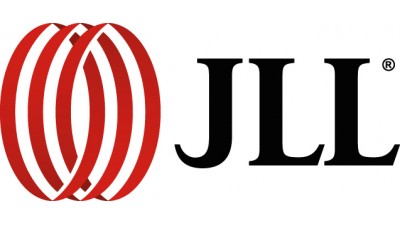The Population Boom Transforming Denver's Industrial Market

A population boom, an influx of millennials and economic stability have put Denver on the map as one of the country's hottest markets. The growth has also put the region on the radar of major industrial investors and occupiers attracted to the growing workforce seeking out Denver for its better work-life balance and quality of life.
Denver ranks No. 2 on U.S. News & World Report’s “Best Places to Live,” and added almost 12,000 new residents compared to last year. As the workforce grows and evolves, so has the industrial market.
The Average Square Footage For Industrial Development And Leasing Has Increased
Legalizing marijuana in 2013 did more than spark a “Green Rush” of recreational users into Colorado. Marijuana sales grew from $700M in 2014 to over $1B in 2016.
To keep up with the pace of demand, marijuana cultivation and manufacturing facilities claimed the majority of Denver’s Class-B and C industrial inventory, occupying 4.5M SF by the end of 2014. With little space available, rents grew over 10% year-over-year to a record high $7.47/SF, and left the market with few economically feasible options.
“It really turned the market on its side by increasing the rental rates and building sales,” JLL Vice President of Logistics and Industrial Services Carmon Hicks said. “But it also forced developers to dust off their plans and build new product in the market.”
Developers quickly delivered new product to alleviate the 2.8% industrial vacancy rate recorded in Q3 2015, the lowest in Denver’s history. The Interstate 70 corridor has become a focal point for development because of its ease of access throughout the entire Front Range and the available land for big-box warehouse development, which attracts national credit tenants.
More household names, like Best Buy, Walmart and Amazon are planting a flag in the region. The average lease size has grown from mid-20K SF in 2014 to mid-40K SF in 2016, not accounting for major outliers like Amazon. There is little doubt that Denver will continue to be a hot spot for growth, encouraging developers to continue building speculative development projects upward of 500K SF, with the ability to subdivide as needed.
“Prior to this growth, I can’t tell you how many calls we received from clients across the country who say, ‘Send me a list of your top 500K SF available buildings.' It would be a quick call: zero,” Hicks said.
The Industry Has Diversified
As Denver becomes a mecca for live-work-play and continues to attract a growing millennial population, companies are relocating to the region to capture the strong employment and concentration of skilled labor. The industrial sector has diversified to include food and beverage production, technology and e-commerce, changing the landscape of business in the metro beyond Denver's oil town past.
The food and beverage industry posted the highest rate of growth in 2016, and with it came increased demand for distribution facilities. McLane Foodservice Inc., a national food service supply chain, just finished its 250K SF development near the airport. BreakThru Beverage moved into its 650K SF facility.
E-commerce players have also turned to Denver, drawn by a growing urban population demanding improved last-mile delivery. Amazon occupied 452K SF last June and is constructing a 1M SF facility at the I-70/E-470 intersection. The e-commerce giant is also permitting a three-story, 2.4M SF fulfillment center in Thornton, Colorado.
“We haven’t had e-commerce here before, and because there are so many millennials in the area, e-commerce is moving in to service their instant gratification needs,” JLL research analyst Margaret James said.
Increased Investment Opportunity
Denver’s growing economy has also attracted out-of-state investors.
“There is this need or want to have something in the Denver market,” James said. “We have seen an increase in investment sales, because we have seen such a boom and different kinds of growth. We are a much more stable economy. We are not just an oil market anymore.”
Compared to more expensive markets like the East and West coasts, Denver is a cheaper alternative, Hicks said. Continued low interest rates across the U.S. have kept capital markets bullish, and banks remain confident about Denver’s continued growth.
Investors have multiple options for acquiring property, whether through a leaseback deal or acquiring a portfolio. Banks favor Denver’s industrial product over another office asset because of the long-term stability provided, James said. Industrial is also pulling from more institutional investors and REITs. First Industrial Realty Trust Inc. bought a 181K SF Sherwin-Williams Co. distribution facility in Aurora, Colorado, for $11.5M.
In Denver, industrial investment opportunity will keep growing, Hicks said.
“We are seeing local institutional owners take investment product to the market because there is an appetite for it."
To learn more about this Bisnow content partner, click here.

